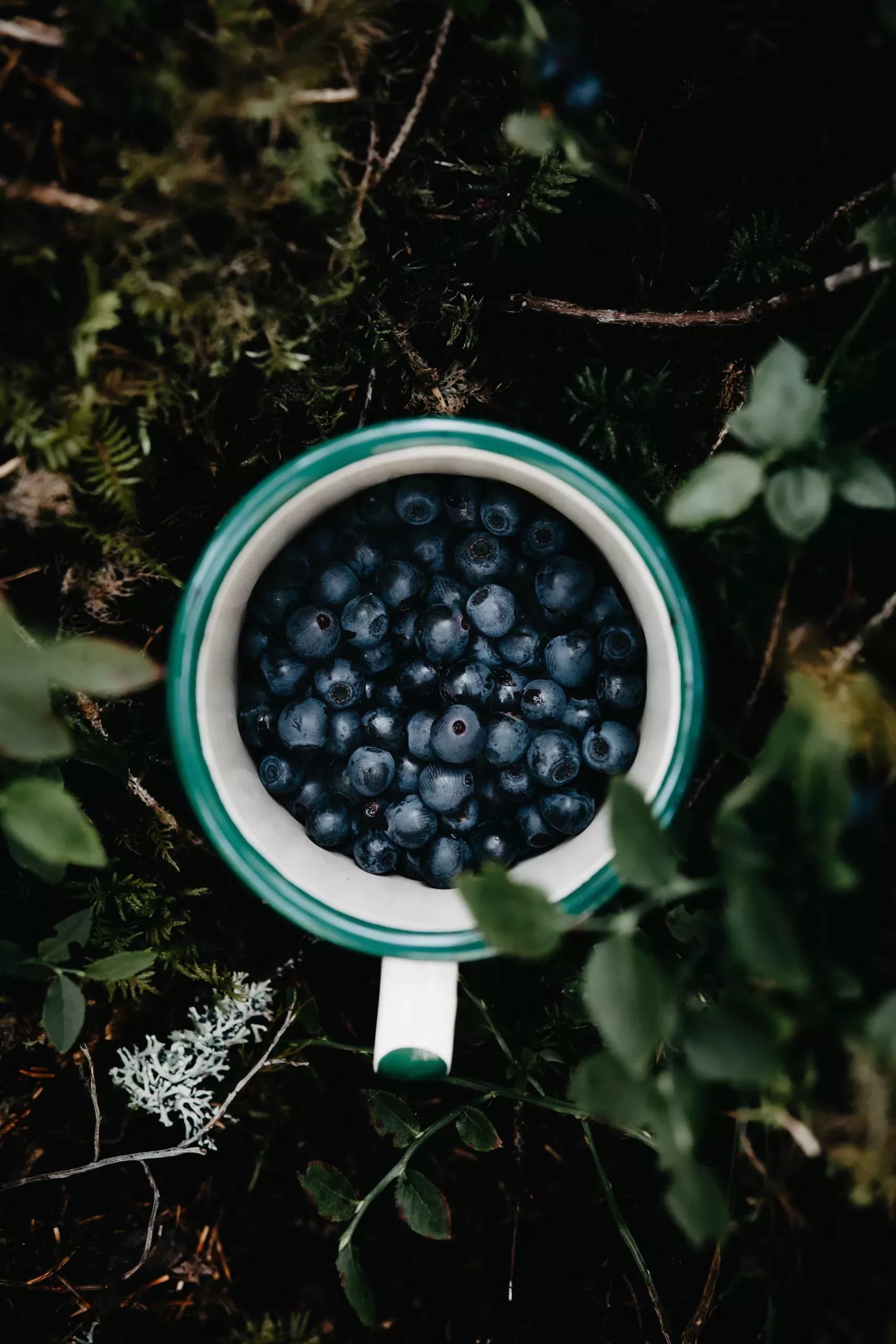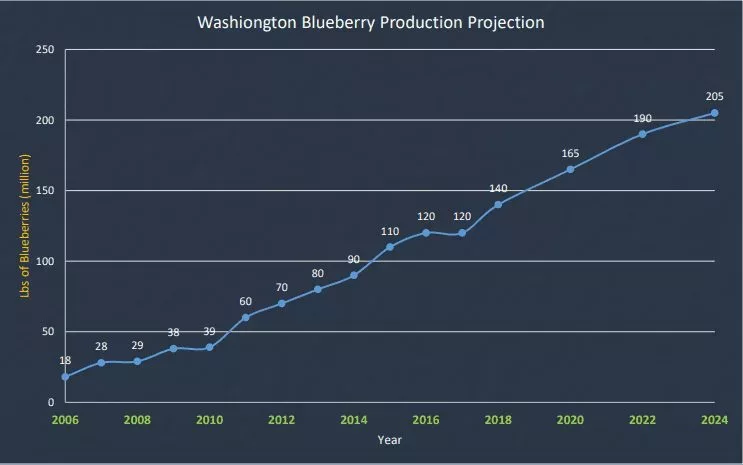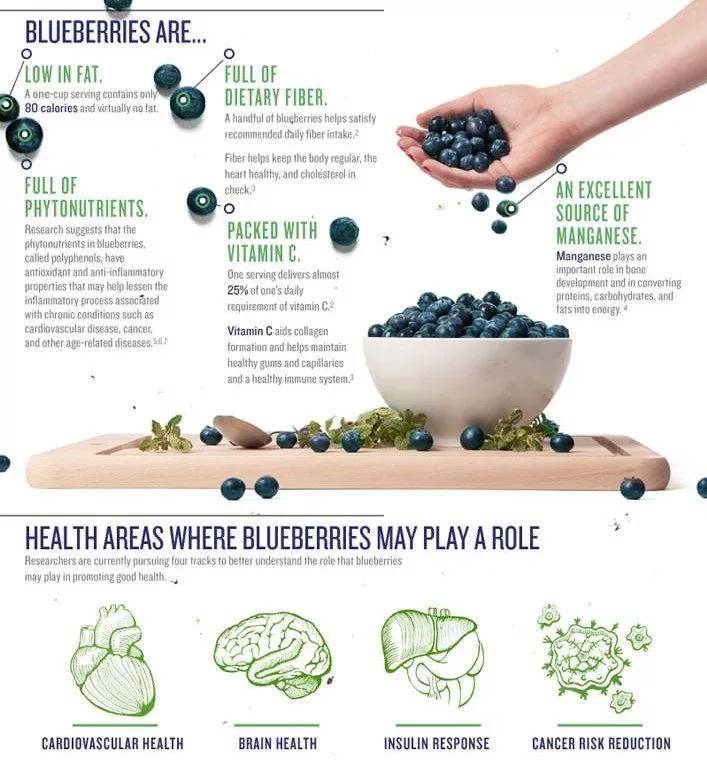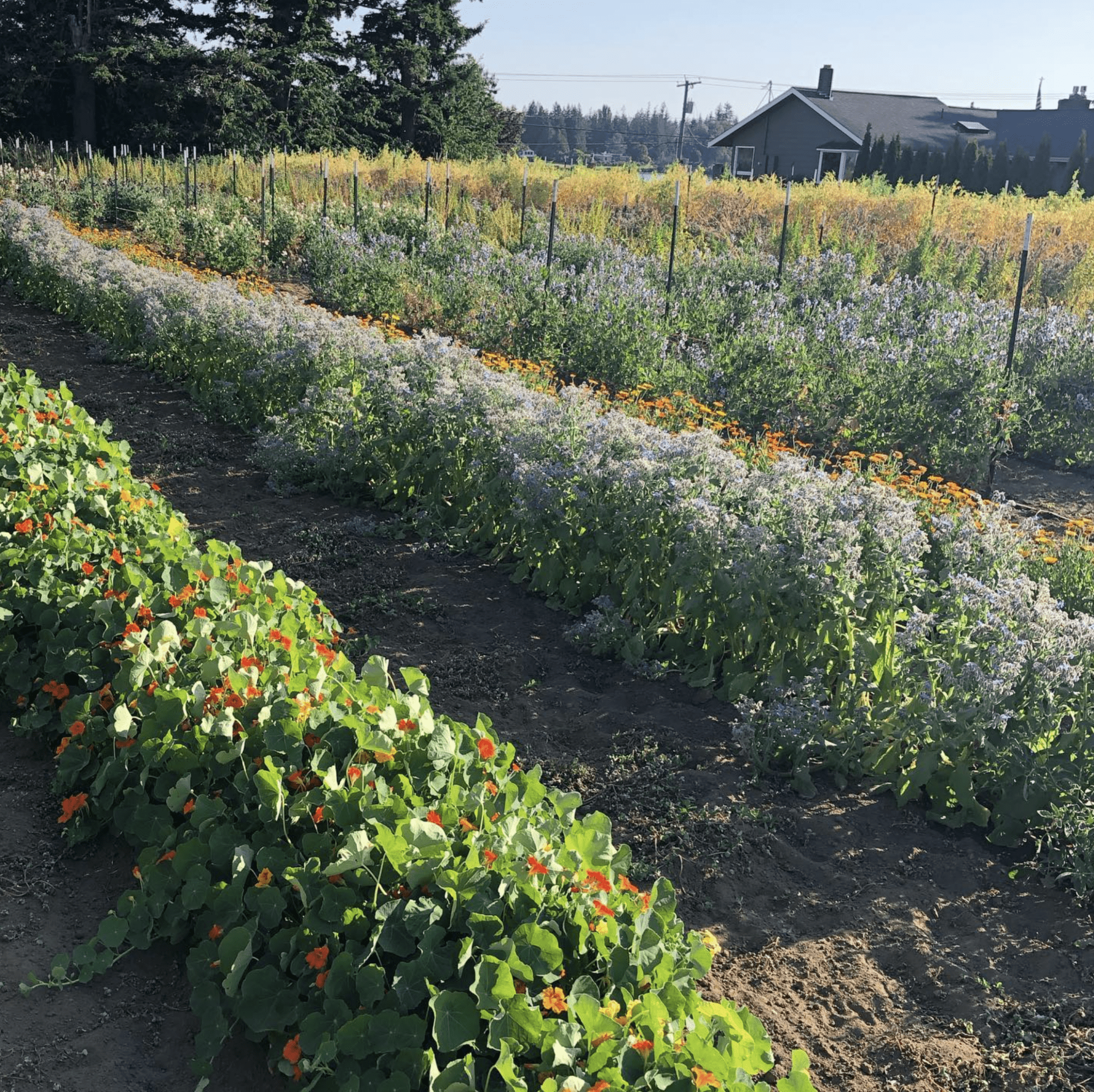
Berry Exciting!
Did you know that Whatcom County is the leading producer of blueberries in Washington and that Washington is the largest producer of both organic and conventional blueberries in the nation? Half of all of the nation’s blueberries are grown right here in Washington, according to the Whatcom Conservation District. The United States Department of Agriculture (USDA) conducts a Census in Agriculture every five years. The last time the census was conducted was 2017; that year Washington processed more blueberries than any other location in the world!
Blueberries have been grown in Washington for over 50 years, but that doesn’t mean that Whatcom County’s record 7,000 acres of blueberries in 2017 represents the apex of the county’s blueberry ambitions. Of those impressive 7,000 acres, a quarter were four years old or younger and the sector is still growing significantly, according to the Washington Blueberry Commission’s report.

The Washington Blueberry Commission’s projection for Washington blueberry production in the coming years if no current plantings are removed and all future plantings halt.
With local blueberries here to stay, it is worth considering what makes blueberries so special to consumers. These little balls of goodness are packed full of health benefits. As the Washington Blueberry Commission explains, blueberries are a heart-healthy superfood. Coming in at just 80 fat-free calories a cup, blueberries are a rich source of dietary fiber, vitamin C, protein, and manganese. Blueberries also rank high in antioxidants, which studies indicate help protect against cancer, heart disease, and other age-related illnesses. More recent scientific research demonstrates that blueberry consumption contributes to gut health, reduces inflammation, increases T-cell immune function, prevents urinary tract infections, and protects against age-related memory deficits.

Graphic courtesy of the U.S. Highbush Blueberry Council
Now that you know more about the “where” and the “why” of blueberries, you can better enjoy the Co-op’s peak season selection from farms tended by your neighbors.





